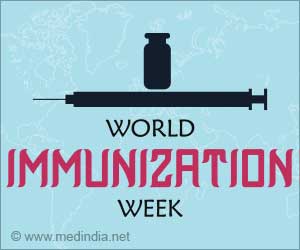An Indian and an American firms have jointly developed a new lifelong cure for kala-azar, or black fever as visceral leishmaniasis (VL), the second most deadly parasitic disease in the world following malaria, is known in India.
The drug was prepared by OneWorld Health, a San Francisco charity focusing on treatments for neglected diseases, in collaboration with the Hyderabad-based drug manufacturer Gland Pharma Limited, the American company announced.The drug is expected to be a key tool for India's National Vector Borne Disease Control Programme (NVBDCP), which aims to rid the country of VL by 2010, and disease control programmes in other VL-endemic countries.
The Drug-Controller General of India (DCGI) has approved Paromomycin Intramuscular (IM) Injection to treat the disease that kills an estimated 500,000 people a year, 90 percent of them in India, Nepal, Bangladesh, Brazil and Sudan.
The application to the DCGI was based on data from a large Phase III multi-centre, randomised and controlled clinical trial of 667 adult and paediatric patients conducted in Bihar State, India, which showed that nearly all patients (94.6 percent) treated with Paromomycin were cured of VL.
A 21-day course of the drug provides a safe, affordable, and effective cure for kala-azar. A full course of treatment stimulates a specific, cell-mediated immune response, resulting in life-long protection from future infection.
The approval of Paromomycin IM Injection is a major milestone in global health, providing a lifelong cure for a deadly parasitic disease, the American firm said.
Advertisement
"We are pleased that the first drug in our portfolio will be an important public health tool to help the Indian government safely and affordably control VL."
Advertisement
Since VL afflicts many people in remote villages and regions that lack a strong healthcare infrastructure, OneWorld Health will initiate a Phase IV pilot access programme in Bihar to facilitate the introduction of Paromomycin IM Injection in these settings. To support its work with partners in India, OneWorld Health will open a liaison office in New Delhi and a programme office in Patna, Bihar.
"We are proud to have partnered with OneWorld Health to help meet the critical need for new treatments for kala-azar," said Ravi Penmetsa, the managing director of Gland Pharma Limited.
"This partnership is an innovative way for our company to use its expertise and corporate philanthropy to benefit India. With our combined resources, we are confident that we will make Paromomycin IM Injection available in India and save the lives of people afflicted with kala-azar."
The development of Paromomycin IM Injection to fight VL was made possible by a unique collaboration among OneWorld Health, Gland Pharma Limited, the International Dispensary Association (IDA), IDA Solutions, the World Health Organisation's special programme for research and training in tropical diseases (WHO/TDR) and the government of India. The Bill & Melinda Gates Foundation provided funding for clinical testing of Paromomycin.
"This is an important milestone in the fight against visceral leishmaniasis, and it demonstrates the potential for public-private partnerships to develop new solutions to serious global health problems," said Regina Rabinovich, programme director of the Gates Foundation's Infectious Diseases Programme.
VL currently occurs in 62 countries, primarily in the developing world. Of the approximately 500,000 new cases of VL occurring annually, 90 percent are found in just five countries: India, Bangladesh, Nepal, Sudan and Brazil. The most affected state in India is Bihar, but VL is also endemic in Jharkhand, West Bengal and Uttar Pradesh.
Source-IANS
SRM






